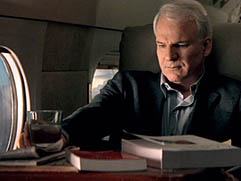Where Three Worlds Meet

From an obituary for David Brown, who died at 93 on Monday–
"David Brown was a force in the entertainment, literary and journalism worlds," Frank A. Bennack, Jr., vice chairman and chief executive officer of Hearst Corporation, said in a statement Tuesday. —Polly Anderson of the Associated Press
Mark Kramer, "Breakable Rules for Literary Journalists," Section 8–
"Readers are likely to care about how a situation came about and what happens next when they are experiencing it with the characters. Successful literary journalists never forget to be entertaining. The graver the writer's intentions, and the more earnest and crucial the message or analysis behind the story, the more readers ought to be kept engaged. Style and structure knit story and idea alluringly.
If the author does all this storytelling and digressing and industrious structure-building adroitly, readers come to feel they are heading somewhere with purpose, that the job of reading has a worthy destination. The sorts of somewheres that literary journalists reach tend to marry eternal meanings and everyday scenes. Richard Preston's 'The Mountains of Pi,' for instance, links the awkward daily lives of two shy Russian emigre mathematicians to their obscure intergalactic search for hints of underlying order in a chaotic universe."
Hints:
“Logic is all about the entertaining of possibilities.”
— Colin McGinn, Mindsight: Image, Dream, Meaning, Harvard U. Press, 2004
"According to the Buddha, scholars speak in sixteen ways of the state of the soul after death…. While I hesitate to disagree with the Compassionate One, I think there are more than sixteen possibilities described here…."
— Peter J. Cameron today
"That's entertainment!"
— Jack Haley Jr.







